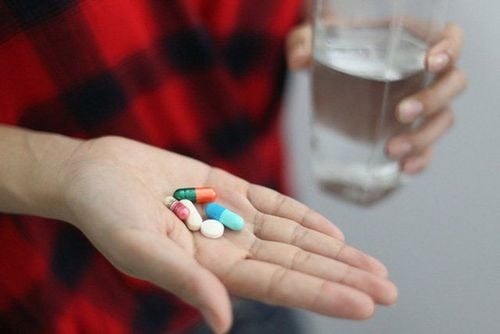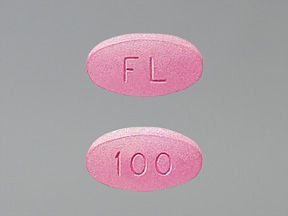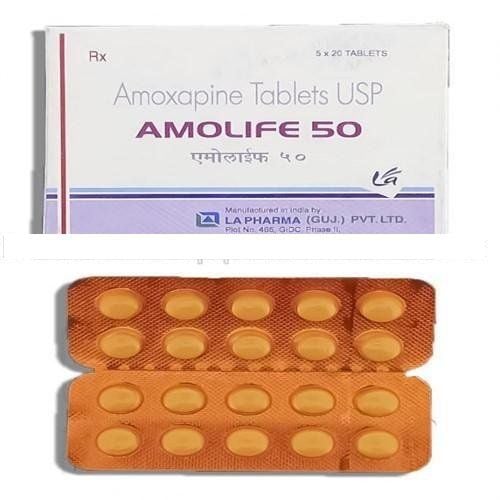This is an automatically translated article.
Nefazodone, the active ingredient nefazodone hydrochloride, is used in the treatment of depression. The drug is prepared in tablet form, with the concentrations of nefazodone hydrochloride are 50mg, 100mg, 150mg, 200mg and 250mg.
1. What is Nefazodone?
Nefazodone is used for patients with depression. It is often used after treatment with other medicines because of the risk of liver damage (liver failure). Nefazodone works by restoring the balance of certain natural chemicals in the brain (neurotransmitters such as serotonin, norepinephrine).
2. How to use Nefazodone?
Nefazodone is taken by mouth, with or without food, usually twice daily or as directed by your doctor. Follow all instructions on the label and instructions for use of Nefazodone. Doctors can sometimes change the dosage depending on the patient's condition. Use the medicine exactly as directed.
Take your medicine every day at the same time. Patients may need frequent blood tests to check liver function. It may take several weeks before a person's symptoms improve. Patients should continue to follow directions and let their doctor know if symptoms do not improve.
If you forget to take a dose, take it as soon as you remember. If it is almost time for your next dose, skip the missed dose and continue with the next correct dose. Do not use a double dose.
The drug should be kept at room temperature, away from light and moisture. Do not store in the bathroom.
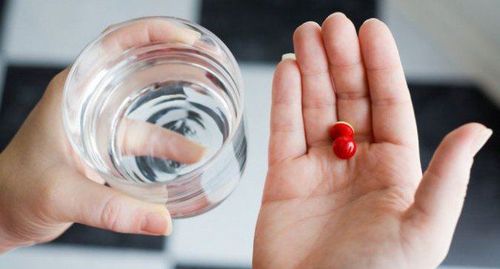
Thuốc Nefazodone được sử dụng bằng đường uống theo chỉ dẫn
3. Drug interactions
Drug interactions can change the way Nefazodone works or increase the risk of unwanted effects. The article does not cover all possible drug interactions when taking nefazodone hydrochloride. Keep a list of all products used (including prescription drugs, over-the-counter medicines, and herbal products) and talk to your doctor or pharmacist. Patients should not arbitrarily stop, start or change the dose of any medicine without the prescription of the treating doctor.
Some products that may interact with Nefazodone include: Carbamazepine, eplerenone, ergot alkaloids (such as dihydroergotamine, ergonovine, ergotamine, methylergonovine), ivabradine, lurasidone, pimozide, triazolam, alpha blockers (e.g. Terazosin) , digoxin , fluoxetine , medicines for high blood pressure, other antidepressants (including trazodone , SSRIs such as fluoxetine ), medicines that can cause bleeding or bruising (e.g. Anticoagulants such as heparin or warfarin , antiplatelet drugs including NSAIDs such as ibuprofen).
When used with MAO inhibitors (isocarboxazid, linezolid, methylene blue, moclobemide, phenelzine, procarbazine, rasagiline, safinamide, selegiline, tranylcypromine) can cause serious drug interactions (possibly fatal) that should be Avoid using together. Most MAO inhibitors should also not be taken for two weeks before and 1 week after treatment with Nefazodone.
Do not take eletriptan within 72 hours of taking Nefazodone.
Nefazodone may slow the removal of other medicines from the body, which could affect how well they work. Examples of affected drugs include buspirone, dasatinib, domperidone, fentanyl, regorafenib, sunitinib, tacrolimus, statins (such as simvastatin, lovastatin, atorvastatin), some benzodiazepines (such as alprazolam).
Patients should inform their doctor or pharmacist if they are using other products that cause drowsiness such as opioid pain relievers or cough suppressants (such as codeine, hydrocodone), alcohol, marijuana, sleeping pills, muscle relaxants (such as carisoprodol, cyclobenzaprine), or an antihistamine (such as cetirizine, diphenhydramine).
Patients should check the ingredients on all medicines (eg allergy or cough and cold products) as they may contain ingredients that cause drowsiness. Consult your pharmacist to be able to use them safely.
Check all drug labels carefully because many medicines contain pain relievers or fever reducers (NSAIDs) that can increase the risk of bleeding if taken with Nefazodone. Low-dose aspirin can be continued if prescribed for underlying medical conditions such as heart attack or stroke prevention (usually at doses of 81-325 mg per day).
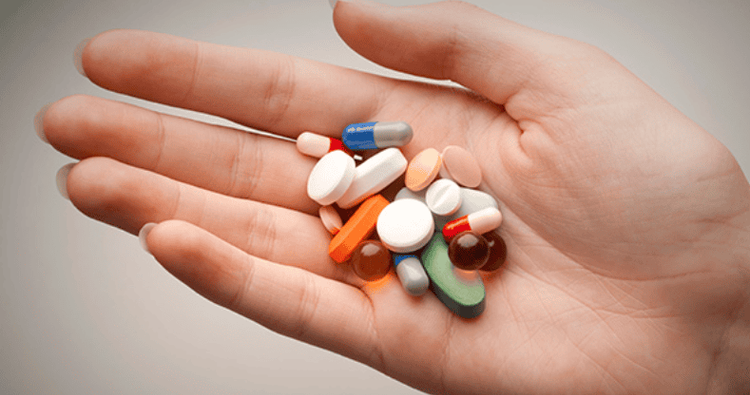
Thuốc Nefazodone có thể tương tác với một số loại thuốc khác nhau
4. Beware of Nefazodone's side effects and precautions when using it
4.1. Undesirable effects Possible side effects include: Dizziness, drowsiness, lightheadedness, nausea, dry mouth or constipation. If any of these effects persist for a long time or become more severe, tell your doctor or pharmacist right away.
To reduce dizziness and lightheadedness, the patient should get up slowly from a sitting or lying position.
Suck on sugar-free hard candies, shaved ice, chew sugar-free gum, drink water or use artificial saliva to relieve dry mouth.
Patients need to keep in mind that their doctor prescribes Nefazodone because they have judged that the benefits outweigh the risks of side effects. Many people use Nefazodone without serious side effects.
Tell your doctor right away if any of these unlikely but serious side effects occur, including: Confusion, weakness, fainting, seizures, easy bleeding or bruising.
Contact medical help immediately if any very serious side effects occur, including: Black stools, vomit that looks like coffee grounds; eye pain, swelling or redness, dilated pupils, vision changes (such as seeing rainbows around lights at night, blurred vision).
A rare side effect in men is pain or an erection lasting 4 hours or more. If this occurs, the patient should stop taking Nefazodone and notify the doctor or seek medical help immediately, otherwise it will happen frequently.
Serious allergic reactions to Nefazodone are very rare. However, patients should seek immediate medical attention if they notice the following symptoms of a serious allergic reaction, including: Difficulty breathing, rash, itching, or swelling (especially of the face, tongue, and tongue) , throat), severe dizziness.
The above is not a complete list of all unwanted effects that may occur when using Nefazodone . If the patient notices other effects not listed above, contact the treating doctor or pharmacist.
4.2. Precautions Before taking Nefazodone , tell your doctor or pharmacist if you are allergic to nefazodone hydrochloride ; or if you are allergic to any other medications. The inactive ingredients (excipients) found in Nefazodone may cause allergic reactions or other problems. Talk to your pharmacist for details.
Before using Nefazodone, it is important to inform your doctor about your medical history, especially: liver disease, personal or family history of mental disorders (e.g., Bipolar or Manic Disorders). colds), personal or family history of suicide attempts, cardiovascular disease (e.g., History of stroke or heart attack), excessive loss of body fluids, seizures, ulcers, or intestinal bleeding ( peptic ulcer disease), a personal or family history of glaucoma (angle-closure type).
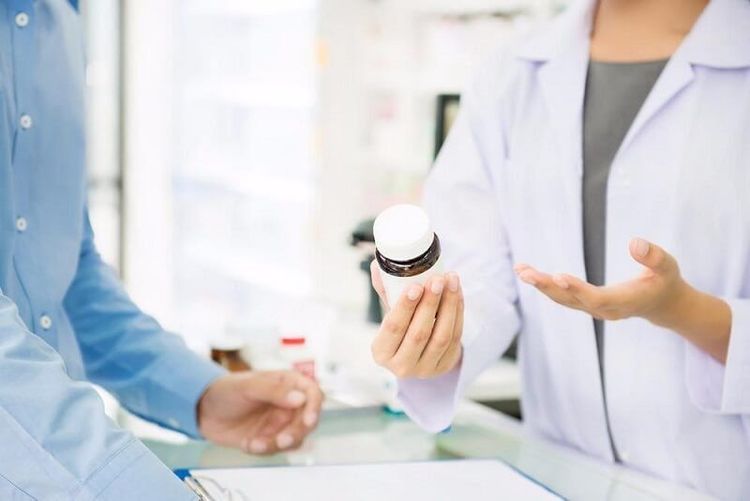
Hãy thông báo với bác sĩ các bất thường khi dùng thuốc Nefazodone
Nefazodone may make you dizzy or drowsy. Do not drive, use machines, or do anything that requires alertness until it is safe to do so. In addition, patients should minimize alcoholic beverages and avoid the use of marijuana.
Nefazodone should be used with caution in the elderly because they may be more sensitive to its side effects, especially dizziness, drowsiness, or bleeding.
During pregnancy, Nefazodone should be used only when clearly needed. Patients should discuss the benefits and risks of taking Nefazodone with their doctor to determine the optimal treatment option.
Untreated mental problems (such as depression) can lead to a serious condition, so patients should not stop taking Nefazodone unless directed by their doctor.
It is not known whether Nefazodone is excreted in breast milk, so patients should consult their doctor before breast-feeding.
Please dial HOTLINE for more information or register for an appointment HERE. Download MyVinmec app to make appointments faster and to manage your bookings easily.
Reference source: Webmd.com, DailyMed



